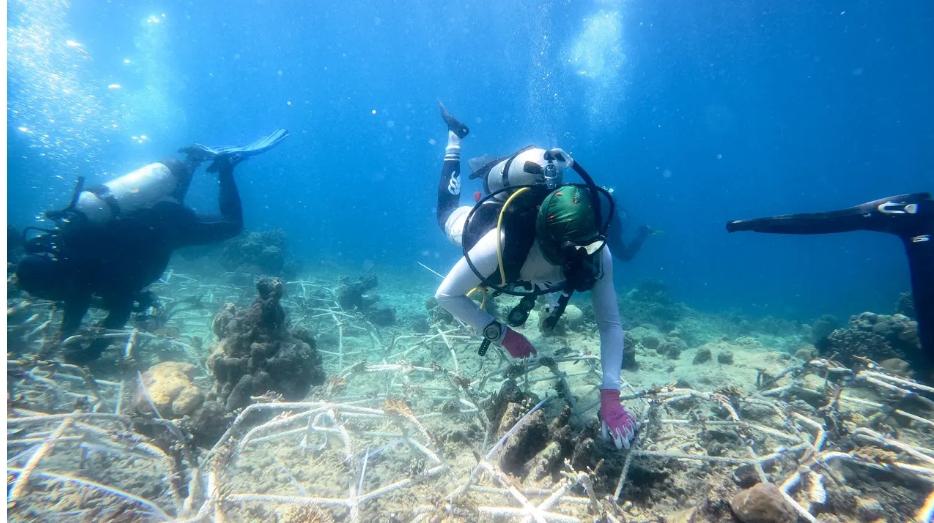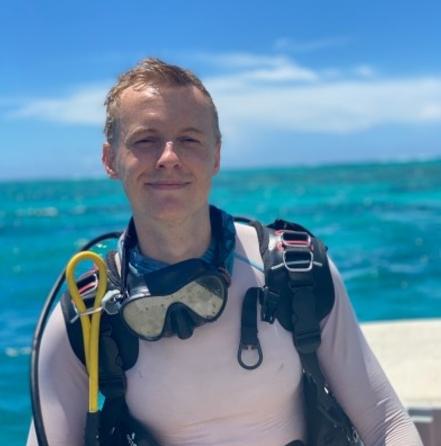
Ben Williams- Soundscapes of restored reefs
Marine Program Science Officer, United Kingdom
- Ben Williams is a PhD student at University College London and the Zoological Society of London. Ben's research is focused on applications of artificial intelligence for coral reef conservation and restoration, with a significant focus on tracking recovery using acoustic monitoring to date. Ben has also worked as a science officer for the restoration program, leading technological innovations and establishing collaborations with external partners.

Background: Mars Reef Restoration Internship
During 2023, for six months, we welcomed Ben Williams to the Mars Sustainable Solutions team as a Science Officer. As part of the internship, Ben spent 5 weeks in Indonesia, starting his journey to become a MARRS trainer and playing a key role in the two-week science expedition around Hope Reef.
Within the science program, Ben was able to expand our photogrammetry work, leading two exciting collaborations with external partners to increase the usability and visibility of this technology.
Outside of Indonesia, Ben worked with Mars data scientists as part of a data hackathon to train machine-learning based models to identify differences between degraded and healthy reefs.
Ben was also able to develop his own research by expanding acoustic monitoring efforts beyond Indonesia and begin working with Mars restoration partners across the tropics. Ben was a fantastic spokesperson for the program both within the science community and beyond, even representing Mars at the NetExplo Innovation awards where he won first prize.
Soundscapes of Restored Reefs
Coral reefs are noisy places. On a thriving reef you’ll hear popping, whooping and other bizarre sounds. But what can these sounds tell us?
Collaborating researcher, Ben Williams, has developed an Artificial Intelligence (AI) model to use these sounds to measure the success of coral reef restoration. Through trial and error, Ben & team have produced an AI model that could correctly identify which kind of reef (degraded or healthy) the acoustic recordings originated from 92% of the time.
Given the success of these trials, the next step is now to take the approach global. By taking recordings from multiple Mars restoration sites around the world, the team will determine whether we see this recovery in the soundscape universally and whether AI can help track this.
To read more, please click: https://building-coral.files.svdcdn.com/production/assets/images/1-s2.0-S1470160X22004575-main.pdf?dm=1732783736
For more research, please follow: https://www.researchgate.net/profile/Ben_Williams35

